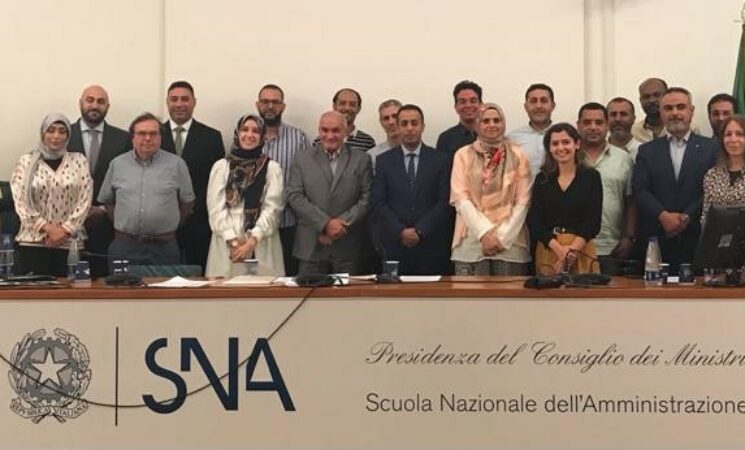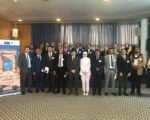In July 2022, the OECD gathered 23 representatives from the public and private sector in Libya for a capacity-building programme in Caserta, Italy. The programme provides the participants, or “PPD Champions,” with the tools necessary to support a series of public-private dialogues scheduled in Libya in 2022-23. The sessions on economic development and resilience, private sector development, public policy design, PPD methodology and facilitation and international best practices in the five targeted sectors of the EU-OECD Project.
Familiarity with the policymaking process is key to holding a productive public-private dialogue and to advancing economic reforms in Libya. To that end, the participants attended trainings on policy formulation, implementation and monitoring, as well as how to take into account cross-cutting policy considerations such as gender equality and anti-corruption. Participants discussed the roles and responsibilities of public and private institutions in the policymaking process.
Knowledge of economic foundations among participants can assist them to identify challenges to economic growth and appropriate solutions. In a training on economic development and resilience, participants discussed obstacles facing oil and gas producing countries in diversifying the economy, and the benefits of developing the economic areas where Libya holds a comparative advantage. Building on OECD’s work on the role of SMEs in Libya’s reconstruction, the training also covered the potential of SMEs to simulating economic growth and job creation. This included identifying the challenges facing SMEs and entrepreneurs in different economic contexts and discussing the components of effective SME policy.
The OECD presented a methodology for public-private dialogue, providing guidance for PPD facilitators and other actors involved in PPD. Tatweer Research, a Libyan enterprise committed to fostering a knowledge economy in Libya, facilitated a PPD simulation with the participants. The aim was to familiarize participants with the components of a successful public-private dialogue, including the importance of setting clear objectives and promoting active participation from participants.
Participants also spoke with local experts and regional organizations on international best practices in the five economic sectors of the Project. For the banking sector, participants met with the Union of Arab Banks to identify areas of collaboration and mobilise regional expertise. Representatives from the Union of Arab Banks spoke about the state of the banking sector in Libya across various indicators such as financial inclusion and asset diversity. For the agriculture sector, participants met with the International Centre for Advanced Mediterranean Agronomic Studies (CIHEAM), which has extensive experience leading capacity building projects in Libya, discussed increasing cooperation with the Libyan Ministry of Economy.
At the conclusion of the training, approximately 80% of the participants considered that the sessions provided them with the necessary skills to carry out public-private dialogues in Libya. Furthermore, the training contributed to positively change the participants’ perceptions on the applicability of public-private dialogues in the Libyan context. These highly positive results are encouraging and expected to contribute to the successful completion of the upcoming public-private dialogue activities in Libya.





Leave a Reply
You must be logged in to post a comment.